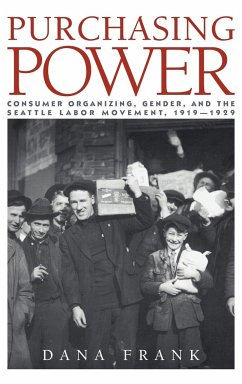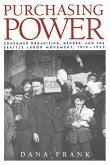This book analyzes consumer organizing tactics and the decline of the Seattle labor movement in the 1920s, as a case study of the U.S. labor movement in the 1920s. The book examines the transformation of the movement after the famous Seattle General Strike of 1919 by showing that workers organized not only at the point of production, but through politicized consumption as well, employing boycotts, cooperatives, labor-owned businesses, and union label promotion. It pays special attention to the gender dynamics of labor's consumer campaigns, as trade union men sought to persuade their wives to "shop union," and to the racial dynamics of campaigns organized by white workers against Seattle's Japanese-American businesses.
Hinweis: Dieser Artikel kann nur an eine deutsche Lieferadresse ausgeliefert werden.
Hinweis: Dieser Artikel kann nur an eine deutsche Lieferadresse ausgeliefert werden.








